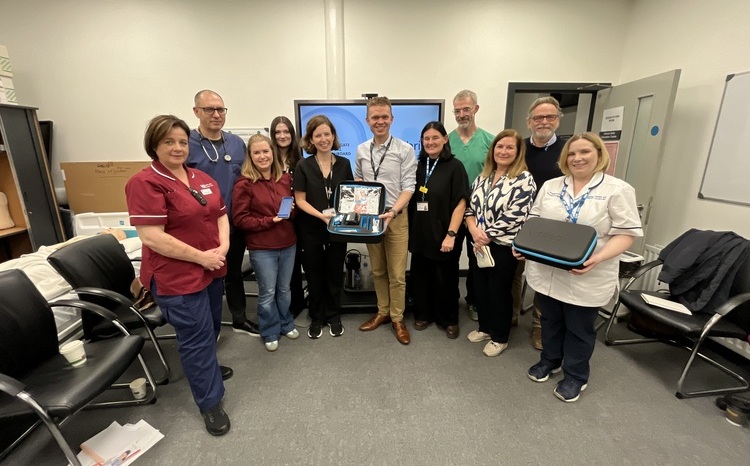Welsh health IT ‘Wizards’ set different path to England
- 2 April 2007
The NHS Wales IT agency Informing Healthcare has announced that it has successfully deployed its first system, an out-of-hours GP summary care record system launched in December.
The GP out-of-hours system in Gwent was implemented by Graphnet Health working together with Adastra software. The project which took six months cost just £200,000. The Graphnet developed summary care record application has been integrated within the Adastra out-of-hours system.
Speaking at the Healthcare Computing conference in Harrogate last month, Dr Martin Murphy, the clinical director for Informing Healthcare said that the system has been a wide success with 350,000 GP summary records uploaded onto it now and support from across the country.
Dr Murphy told the audience that the NHS in Wales was now beginning to deliver on its own flexible patient-centred IT strategy, which would differ in key respects to the multi-billion English NHS IT programme.
The NHS Wales IT approach, now being delivered by 100 Welsh Wizards’ will be based on developing and testing prototypes leading to phased roll-outs rather than the procurement contract approach of Connecting for Health in England.
Wales is unlikely to use either Choose and Book or patient demographic services developed for England. The agency is though keen on adopting the Common User Interface developed jointly by Microsoft and Connecting for Health – possibly implementing it country-wide ahead of England.
Dr Murphy revealed that Informing Healthcare is unlikely to accept an offer from BT to deploy the patient demographic service, including access control and associated systems developed for use in the English NHS IT programme. Instead the Welsh agency is likely to develop the country’s own Welsh Administrative Register as the gateway for the country.
Three options are being considered by Informing Healthcare – the first, to deploy the whole of the English patient demographic service (PDS) including its access control and associated systems, the second to have a Welsh demographic service that interfaces with the English system and the third to completely reprocure and re-build Welsh demographic services.
The agency’s preference is to take up the second option and develop a Welsh Administrative service that interfaces with the English service through a "bi-directional gateway". This option would not use the English access control frameworks which manage the ability of clinical and administrative staff to access systems.
Dr Murphy said: “We differ in our approach to design, implementation, confidentiality and security. For us, it’s not all about lock, stock and barrels. What is important to us is the clinical concerns about individual patients and the safety of maintenance of continuance of care across borders."
“About 6% of Welsh people go across the border for treatment. We don’t want to have to use Choose and Book, which is another example of lock, stock and barrels, but we do want to be able to offer our citizens a choice of referral.”
Dr Murphy told the audience that Informing Healthcare focused on listening to what the citizens wanted, and did not just stick to pre-defined policies developed for the English NHS to deliver its agenda.
“Improving citizen access to services is a fundamental issue. If you are confined to strict policies, there is a danger of losing control of your development and losing control of implementing the said policies. Information should continue to flow. We don’t want to appear as if we are mortgaging our own future.”
Dr Murphy said that although Informing Healthcare did not feel inclined to take the NPfIT products being deployed across England they still wanted a system that would align with neighbouring systems on the borders of Wales.
“We currently have around 16 different PAS [patient administration systems] used by Welsh health authorities and multiple clinical workstations. So in order for us to deal with certain safety issues and efficiency issues, we need to develop a standard Welsh clinical portal.”
He told the audience that Informing Healthcare intended to follow a very different route to CfH based on developing prototypes, which can be tested and learned from, rather than awarding contracts against wish-list specifications.
“For us, it is important that we create a user centred design, it is very important that we show humility in front of the user. We want to have a prototype in place, and not contract driven specifications. We have a dedicated team of 100+ Welsh Wizards developers and we are making use of the private sector to examine capacity and expertise."
He added: “We also want to look at phased migration, and assigning re-procurements one step at a time. One thing we are definitely interested in is looking into using the new Common User Interface standards – it is possible we could be the first to use it on a national scale so we want to look into permission to do that.”
Similarly, he did not feel that plans for Role Based Access Controls being looked at by Connecting for Health were necessary.
“The route taken by CfH seems unwieldy, and requires huge long term maintenance encouraging the development of workarounds. Informing Healthcare does not believe you can ever make enough global roles to cover all possible cases.”
Dr Murphy did not believe that issues around confidentiality and consent were major issues unless trust between patient and doctor was lost.
“It’s all about trust – in my opinion this will be said over and over again for the next five years – but fundamentally if you lose that trust, then you will run into the sand and stop.”
Summarising Wales’ approach to healthcare IT he said: “Choose the right solution, choose the right scale, work bottom-up with local ownership achieving a thorough dialogue with the end users, ensure logged access security and offer explicit consent rules at the point of care.”




